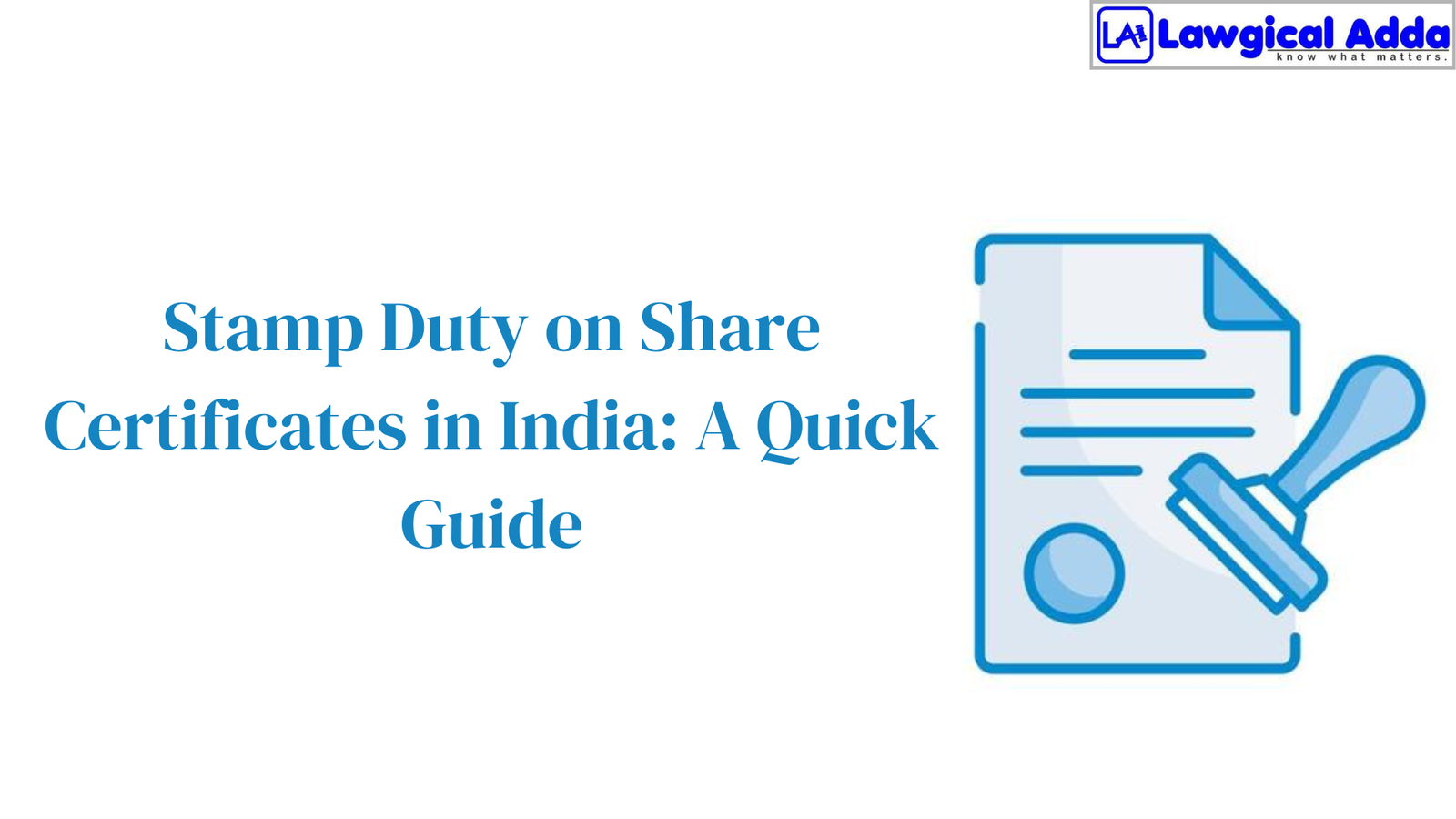Stamp Duty on Share Certificates in India: A Quick Guide

Table of Contents
Introduction
In India, it’s necessary to pay stamp duty on the issuance of share certificates in addition to the stamp duty on the company’s capital. The Finance Ministry’s 2019 Indian Stamp (Collection of Stamp tax) Rules went into effect on July 1, 2020.
They significantly altered the laws governing stamp tax. The Indian Stamp Act states that when a share certificate is issued, a firm must pay stamp duty to the state’s revenue authorities, Treasury Officer, or Collector of Stamps.
What is the Stamp Duty?
The amount of duty imposed on specific documents or instruments that must be paid to the federal or state governments for them to be recognized legally is known as stamp duty.
A Share Certificate: What Is It?
A printed, signed document that serves as official documentation of the ownership of the number of shares indicated on the certificate is called a share certificate. Companies must issue share certificates within the timeframe specified by the Companies Act of 2013.
Timetable for Share Allotment under the Companies Act of 2013
- Allotment within 60 days: The business has 60 days to assign the shares after receiving the application fee. This implies that the applicants should receive their share allocation within the allotted time limit.
- Application Money Refund: The corporation must give the applicants their full application money back within 15 days if the allocation still needs to be completed in 60 days.
- Refund and pay 12% annual interest, a deposit under Section 73. The corporation must return the application money plus interest at the rate of 12% annually if the refund is not made within 15 days of the 60-day period ending. After 15 days, the sum plus interest will be considered a public deposit.
Indian Stamp Duty on Share Certificates
A state-level fee known as stamp duty is applied on various documents, including share certificates, to confer legal validity on them. The stamp duty rates in India are set by the Indian Stamp Act of 1899 and might change between states.
Stamping SH-1 share certificates is necessary within 30 days of the date of issuance. A tax known as stamp duty is applied to certain documents, such as share certificates, to verify them legally.
The stamp fee must be paid within the allotted time, and the certificate must be correctly stamped.Share certificate e-stamping has several benefits over conventional stamping techniques.
It offers a safe and impenetrable means of verification, streamlines the stamp duty payment procedure, lessens administrative responsibilities, and lowers the likelihood of stamp duty evasion.
Furthermore, e-stamping systems frequently provide online records and receipts, which facilitate the maintenance of correct documentation by the parties engaged in the transaction.
How can I pay my stamp duty?
The process for paying stamp duty differs from state to state because it is a state-specific matter when share certificates are issued. In certain states, you can spend the money offline via the SHCIL e-stamp website link. In other states, you can purchase stamp paper or have the franking completed at the Registrar’s office.
Penalties for failing to pay stamp duty
Should the firm fail to pay stamp duty or avoid paying it when a share certificate is issued, or if shares are not allocated within the 30-day period as required by law, the corporation may face severe penalties, up to ten times the tax under the Act.
If you’re navigating this or any other legal intricacies, Lawgical Adda is here to help! Our expert team is ready to guide you through every step of business registration and compliance, whether you’re launching a new venture or managing an established one.
Don’t let legal hurdles slow you down reach out to Lawgical Adda today and get the answers you need with ease and confidence!







